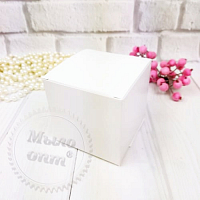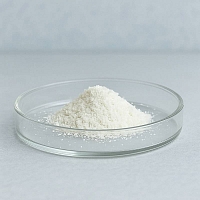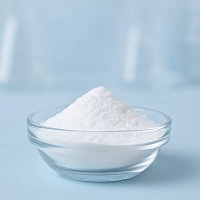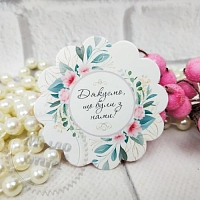-
 Absolutes
Absolutes
-
 Active Complexes
Active Complexes
-
 Actives and Peptides for Cosmetics
Actives and Peptides for Cosmetics
-
 Amino Acids
Amino Acids
-
 Food Flavorings
Food Flavorings
-
 Ayurveda
Ayurveda
-
 Vitamins
Vitamins
-
 Gelling Agents and Thickeners
Gelling Agents and Thickeners
-
 Hydrosols and Floral Waters
Hydrosols and Floral Waters
-
 Hydrolyzed Proteins
Hydrolyzed Proteins
-
 Fragrant and aromatic substances
Fragrant and aromatic substances
-
 Acids, Salts, Alcohols, and Alkalis
Acids, Salts, Alcohols, and Alkalis
-
 Preservatives and Antioxidants
Preservatives and Antioxidants
-
 Cosmetic Raw Materials
Cosmetic Raw Materials
-
 Dyes, Pearlescents, and Glitters
Dyes, Pearlescents, and Glitters
-
 Face Masks, Scrubs, and Dried Flowers
Face Masks, Scrubs, and Dried Flowers
-
 Oils, batters, macerates, oil mixtures
Oils, batters, macerates, oil mixtures
-
 Candle Supplies
Candle Supplies
-
 Melt and Pour Soap Bases
Melt and Pour Soap Bases
-
 Base for cosmetics, cream, serum, shampoo
Base for cosmetics, cream, serum, shampoo
-
 Fragrance Oils
Fragrance Oils
-
 Surfactants
Surfactants
-
 Peelings for Skin
Peelings for Skin
-
 Herbal Powders and Plant
Herbal Powders and Plant
-
 Silicones and Conditioning Surfactants for Hair
Silicones and Conditioning Surfactants for Hair
-
 Raw materials for dietary supplements
Raw materials for dietary supplements
-
 Packaging for Cosmetics and Perfumes
Packaging for Cosmetics and Perfumes
-
 Molds, Packaging, Tools
Molds, Packaging, Tools
-
 Organic Extracts
Organic Extracts
-
 Emollients for Cosmetics
Emollients for Cosmetics
-
 Emulsifiers
Emulsifiers
-
 Essential Oils
Essential Oils
Propionic Acid: A Powerful Preservative for Your Cosmetic Formulations
Welcome to Milo Wholesale, your one-stop shop for all things cosmetics in Ukraine! We understand the importance of high-quality ingredients for creating safe and effective skincare products. Today, we'll delve into the world of propionic acid, a versatile ingredient commonly used as a preservative in cosmetic formulations.
This guide explores the properties, functions, and applications of propionic acid in cosmetics. We'll discuss its benefits, safety considerations, and how to effectively incorporate it into your formulations. Whether you're a seasoned soapmaker or a budding cosmetic entrepreneur, this comprehensive resource will equip you with the knowledge to confidently utilize propionic acid in your creations.
What is Propionic A
cid?
Propionic acid, with t
he chemical formula CH3CH2COOH, is a short-chain carboxylic acid naturally occurring in certain foods like cheese and yogurt. It's also produced by some bacteria during fermentation processes. In the cosmetic industry, propionic acid is primarily valued for its antimicrobial properties. It effectively inhibits the growth of bacteria, fungi, and other microorganisms that can spoil cosmetic products and potentially harm users.
Benefits of Propionic Acid in Cosmetics
- Preservation: As mentioned earlier, propionic acid excels at extending the shelf life of cosmetic products. By inhibiting microbial growth, it prevents spoilage and maintains the integrity and efficacy of your formulations. This is especially crucial for products containing water-based ingredients, which are more susceptible to microbial contamination.
- Broad-spectrum activity: Propionic acid demonstrates effectiveness against a wide range of microorganisms, including bacteria, yeasts, and molds. This broad spectrum of action ensures comprehensive protection for your cosmetic creations.
- Safe and gentle: Propionic acid is generally considered safe for use in cosmetics at permitted concentrations. However, it's always recommended to follow proper handling guidelines and conduct patch tests before incorporating it into your formulations.
- Cost-effective: Propionic acid is a readily available and relatively inexpensive preservative compared to some alternatives. This makes it a practical choice for cost-conscious cosmetic formulators.
- Works synergistically with other preservatives: Propionic acid can be combined with other preservatives like parabens or phenoxyethanol to create a more robust preservation system, further enhancing product shelf life.
Applications of Propionic Acid in Cosmetics
Propionic acid finds application in a wide variety of cosmetic formulations, including:
- Skincare products: Creams, lotions, serums, gels, and cleansers can all benefit from the preservative power of propionic acid.
- Hair care products: Shampoos, conditioners, styling products, and hair masks can be protected from spoilage with the help of propionic acid.
- Body care products: Soaps, shower gels, body lotions, and deodorants can leverage the antimicrobial properties of propionic acid to maintain their quality.
- Wet wipes and baby wipes: These pre-moistened wipes require effective preservation to prevent bacterial growth, and propionic acid can be a valuable addition in such formulations.
- Makeup products: While less common, propionic acid can be used in specific makeup products like mascaras or liquid eyeliners to enhance their shelf life.
Safety Considerations and Regulations
The safety profile of propionic acid in cosmetics is generally good. However, it's essential to be aware of the following:
- Concentration limits: Regulatory bodies like the European Commission and the US Food and Drug Administration (FDA) have established maximum allowable concentrations of propionic acid in cosmetic products. In the EU, the limit is set at 2% as the acid. Always adhere to these regulations to ensure the safety of your formulations.
- Skin irritation: Propionic acid can potentially cause skin irritation in some individuals, particularly those with sensitive skin. Conducting patch tests before using a product containing propionic acid is crucial.
- Handling precautions: Propionic acid has a strong vinegar-like odor and can be irritating to the eyes and respiratory system. Wear appropriate personal protective equipment (PPE) like gloves, safety goggles, and a respirator when handling concentrated propionic acid.
And also go to the Blog from Мыло Опт, where we share useful information about creating the right natural cosmetics
| INCI | Propionic acid | |
| Other | ||
| Application | "Facial care products: creams, lotions, tonics, serums Body products: deodorants, lotions, creams Hair products: shampoos, conditioners, masks Bath and shower products: shower gels, bath foams Makeup products: mascara, eyeliner, eye shadow" | |
| Color product | is a white crystalline substance with an odor similar to vinegar | |
| Features | All information presented on the site is for reference only | |
| Input percentage | Sodium propionate is commonly used at concentrations of 0.1% to 0.3% in cosmetics | |
| Minimum count | 1 | |
| Name | Propionic acid, 1 kg | |
| Packaging | container for transport | |
| Packing | 1 l | |
| Properties | "As a preservative: Sodium propionate is used as a preservative in foods such as cheese, bread and wine. It helps prevent the growth of mold and bacteria, thereby extending the shelf life of foods. As a fungicide: Sodium propionate is also used as a fungicide to control fungal infections. It is effective against a wide range of fungi, including those that cause mold and athlete's foot. As an antibacterial: Sodium propionate is also used as an antibacterial to fight bacterial infections. It is effective against a wide range of bacteria, including those that cause food poisoning and skin infections. As a feed additive: Sodium propionate is used as a feed additive for livestock. It helps improve digestion and enhance nutrient absorption. In the pharmaceutical industry: Sodium propionate is used as a medicine for certain diseases such as acne and fungal infections." | |
| Purpose | Sodium propionate has a broad spectrum of antimicrobial activity, inhibiting the growth of gram-positive and gram-negative bacteria, as well as fungi and mold. is a safe and effective preservative that is widely used in the cosmetic industry. | |
| Solubility | in water, ethanol | |
| View | powder, crystalline substance | |
| Valid until | 01.2027 | |
-
Date:todayAuthor:Авдотья, КопенгагенReviews
Дуже вдячна 'Мило-опт' за великий вибір баттерів для кремів. Якість чудова, натуральні компоненти. Креми виходять ніжними і ефективними!
Date:todayAuthor:Анастасія, Люксембург









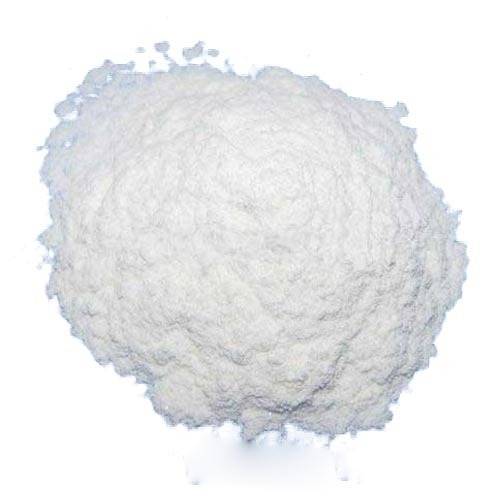
 Add to cart
Add to cart Buy in 1 click
Buy in 1 click

 Add a review
Add a review To favorites
To favorites To compare
To compare






